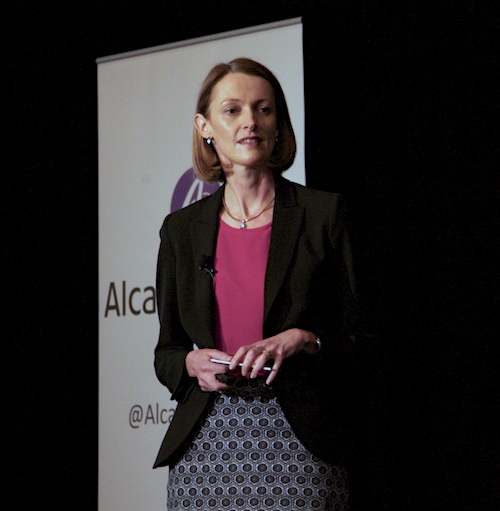Telco customers happier but lag world benchmarks: Optus

An 18-month effort to refocus on customer service has boosted Optus' customer satisfaction scores significantly, but Australian and New Zealand satisfaction scores are still well behind those in comparable countries, the head of the telco's customer strategy has warned.
Speaking at the CommsDay Melbourne Congress, managing director of Optus' Customer division Vicki Brady said that since the telco began a major revamp of its customer strategy 18 months ago, the company has aggressively integrated net promoter score (NPS) tracking across its customer service operations — including tying team bonuses to changes in NPS scores.
"As an organisation, 18 months ago, we made the decision to really reignite Optus as the customer champion," Brady said. "Every day, thousands of people give us a score and invaluable feedback about the things they need us to do. NPS is absolutely critical to our business."
NPS ranks customer satisfaction on a scale of -100 (completely dissatisfied) to +100 (completely satisfied). Given its massive volume of annual customer interactions, Optus has been able to build a large base of historical satisfaction data that it uses to highlight the effectiveness of other organisational changes over time.
NPS scores are released across the organisation within 48 hours, providing a near real-time assessment of the company's customer service culture and helping identify areas in need of further attention. Customer teams receive daily updates on their average NPS rankings, helping team leaders to "focus on what matters most".
"NPS is absolutely critical to our business... It was pretty easy to correlate what results in certain outcomes for customers."
"It was pretty easy to correlate what results in certain outcomes for customers," Brady said, noting that efforts to more tightly integrate NPS rankings into customer support practices have improved "touch point" customer satisfaction measures far more sharply, with an internal NPS average of +30.
NPS scores have become so important to tracking customer satisfaction improvements that quarterly bonuses — which previously "felt vaguely related to performance" — are now tied to teams' average NPS scores.
While the average industry NPS rose from -15 in 2012 to -9 this year, Brady said that Optus' average score has risen to -8 — the highest among its Australian competitors.
However, this score is still far behind those of competitors in India (where the average NPS is +44), the US (+32), the UK (+14), and Canada (+5) — confirming that local operators still have a lot of room to improve customer satisfaction with their services.
Efforts such as a significant overhaul of the company's mobile plans and roaming agreements, which went into effect on July 1, had sought to improve the customer experience by simplifying descriptions of company services and reducing costs. For example, the average cost of data plans have reduced from AU$250 per gigabyte to just AU$10 per gigabyte.
Those changes were ready to go in March, but the company's board decided to push them back to July 1 on the back of concerns that billing and other elements of the offering still needed tweaking to reflect the company's renewed customer focus.
"Australians were feeling pretty ripped off by telco providers in this market, and it was pretty clear that to get back to being a customer champion, we had to address bill shock head on."
This commitment, Brady pointed out, had been made by the company executive, even though it would clearly involve a short-term hit to profits. However, she said, the decision reflected a long-term view that the company would make up the shortfall by broadening its overall market position with happier and more engaged customers.
"We made the commitment that whenever we brought products to market, that we would do it in a different way," Brady explained. "Australians were feeling pretty ripped off by telco providers in this market, and it was pretty clear that to get back to being a customer champion, we had to address bill shock head on.
"That took buy-in from our shareholders and board, that it would make sense in the short term to forego revenue and profits that we believed were destroying trust with customers — and that in the long term, it would be better for our business to put in place better and more transparent pricing. To their credit, they didn't hesitate."
Initiatives such as the introduction of data-usage warnings had helped drive down the volume of customer complaints to the Telecommunications Industry Ombudsman (TIO) by 36 percent over the last year, Brady noted, suggesting that the cultural changes seem to be paying off.
Confirming this was the fact that declining TIO complaints are correlated with improving NPS scores, she added. "We know less complaints means more happy customers," she explained. "And as our NPS heads in the right direction, we're seeing TIO complaints heading down, too. It's good to know we are heading in the right direction."
